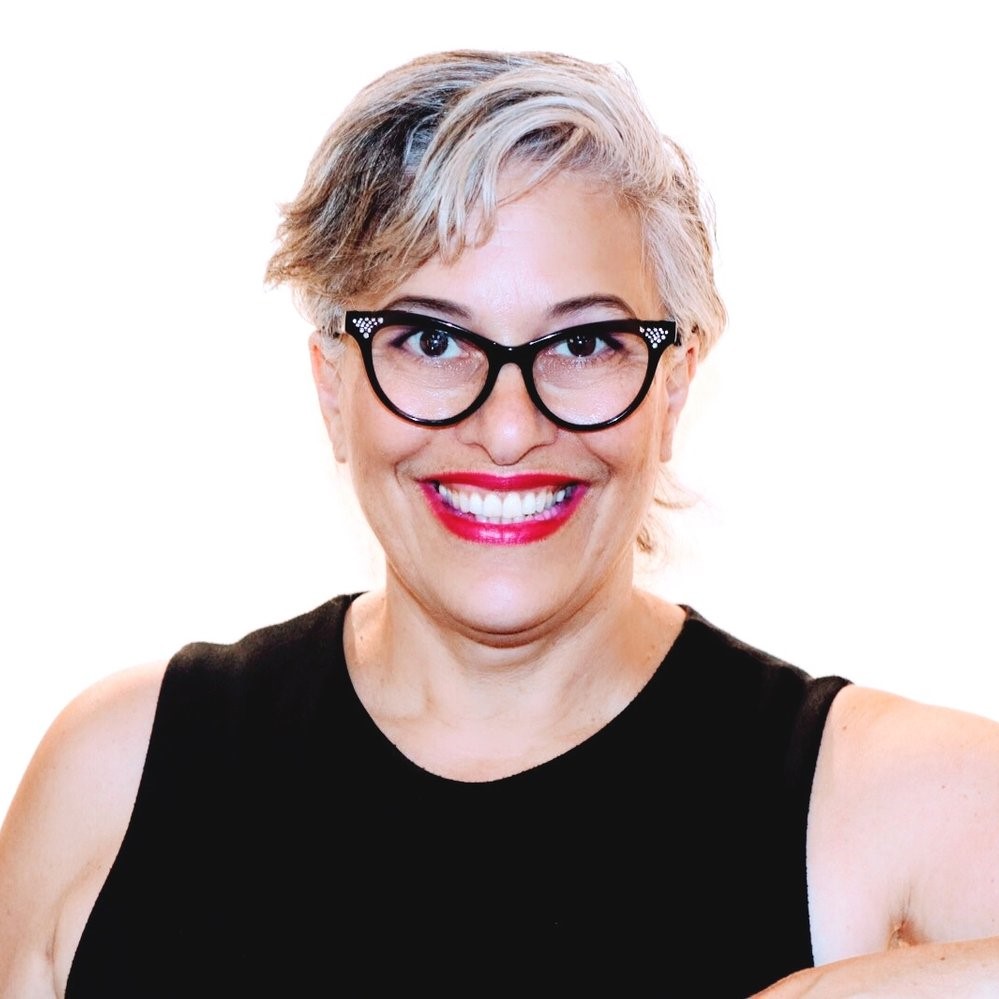Disability and Work in Canada 2020 Virtual Conference:
The Strategy in Action—Pathways and Impacts
Poster Presentations and Poster Presentation Speaker Bios

DISABILITY AND WORK IN CANADA 2020
Strategy-in-Action -- Pathways and Impacts
Virtual Conference – November 25 & 26 and December 1 & 2, 2020
The Disability and Work in Canada 2020 (DWC 2020) Conference was held virtually this year over four days in late November and early December (November 25 & 26 and December 1 & 2). The theme for this year’s conference was the “Strategy in Action—Pathways and Impacts”, with subthemes for each day as follows:
- Wednesday November 25, 2020 – The Big Picture--Challenges and Opportunities
- Thursday November 26, 2020 – Progress in the Workplace
- Tuesday December 1, 2020 – Strengthening Supports for Workers
- Wednesday December 2, 2020 – Moving Forward Together
Poster Presentations
Jump To:
- Addressing Ergonomics of Remote Workers by Jennifer McGillis
- An Institutional Analysis of Workplace Accommodations in the Ontario Non-profit Sector by Alexis Edith Buettgen
- Creative Assistive Technology Solutions by Alan Cantor
- Dealing with head injuries in the context of WSIB by Richard Fink
- Development and implementation of a novel return-to-work support package to improve income protection insurance in the UK by Abasiama Etuknwa
- Direct and Indirect Role of Exercise on Employment for Individuals with Disabilities by Azar Varahra
- Disability and work. The need for an intersectional and solidarity approach by Doris Rajan
- Disability disclosure simulation as an educational tool. Bloorview Research Institute by Sally Lindsay, Mana Resai, Winny Shen, Brent Lyon
- Employment Outcomes for Persons with Early vs Later Disability Onset: Preliminary Findings from the 2017 Canadian Survey on Disability by Stuart Morris
- Managing Physical and Psychological Disabilities in a Unionized Environment A Workplace Model by Viki Scott
- National Disability Insurance: Its Time has Come by Jonathan Marchand
- Neurodiverse talent in the workplace by Wanda Deschamps
- Overcoming Disability Barriers to Leadership by Linda Hunt
- Supporting Stay at Work and Return to Work with TIPS by Nancy Gowan
- The Art of Remote Dragon Assessments, Training, and Customization by Alan Cantor
- The Business Case for Hiring Persons with Disabilities by Kim Donaldson
- The Effects of COVID-19 on Mental Health: Anxiety and Worry about the Workplace by Karina Prokopchuk
- Top Tips to Becoming a Disability-Confident Leader in Your Workplace by Tova Sherman
Addressing Ergonomics of Remote Workers
Description: In many industries throughout COVID-19, many workers have been working from home as a temporary solution to reduce exposure risk. There are many benefits to this but one key concern is the ergonomic challenges this poses to workers and organizations trying to manage the potential ergonomic challenges that come from working in a temporary home office location. This session explores the importance of your work at home policy and what we can be doing to manage ergonomic issues before an employee becomes injured and needs accommodation as well as how to start down the path to accommodation should that need arise.
Tags: Accommodation, Innovation
Jennifer McGillis, Owner, Certified Ergonomist, PROergonomics
Jennifer McGillis has over 16 years’ experience working with organizations to address their ergonomic challenges through assessments, training and program development. Throughout COVID-19, her and her team have worked with more than 50 workplaces across North America to provide education and insight on managing ergonomic issues and injuries in temporary home office workspaces including an @Home Ergonomics webinar and one-on-one virtual assessments to address accommodation needs. Her passion is training and coaching on ergonomics, specifically working with change makers and front-line staff to generate discussion and create problem-based learning opportunities.
An Institutional Analysis of Workplace Accommodations in the Ontario Non-profit Sector
Description: This presentation presents the social organization of workplace accommodation processes within inclusive workplace settings. This presentation draws from an institutional analysis that critically investigated how three Ontario non-profit service providing organizations provided inclusive employment opportunities by examining institutional documents and policies, the perspectives of organization staff responsible for such practices and the everyday experiences of people with disabilities working in these organizations. The accommodation process is examined from the standpoint of people with disabilities working in the non-profit service providing sector and extends upward to map the social relations between the individual and the organizations and institutions that influence their everyday experiences at work. This presentation will highlight the differences between the experiential and ideological ways of knowing disability and accommodations, as well as argues for the need to transform the workplace rather than the person. This presentation explicates how various reading practices of the Ontario Human Rights Code contributed to the abstraction or valued recognition of employees embodied experiences; and how employment in the non-profit sector, from the standpoint of people with disabilities, implies the enrichment but also the sacrificing of one’s individual being.
Additional Materials and Resources:
Tags: Accommodation, Lived experience
Alexis Edith Buettgen, Senior Research Officer, Eviance

Creative Assistive Technology Solutions
by Alan Cantor
Description: I demonstrate one-of-a-kind, inexpensive ($0 to $400) assistive technology solutions that I "sculpted" to fit the unique needs of employees with physical, sensory, learning, and psychological disabilities. These solutions include tools I MacGyvered from hardware store parts, macros (custom computer commands) that significantly reduced physical effort, macros that minimized cognitive effort, and counterintuitive (yet highly effective) speech recognition techniques that halved the number of steps for performing complex tasks. These accommodations made a critical difference to each individual's ability to work while doubling (or quadrupling) productivity, reducing error, improving occupational safety, and boosting morale.
Additional Materials and Resources:
Tags: Accommodation, Innovation, Technology
Alan Cantor, President, Cantor Access Incorporated
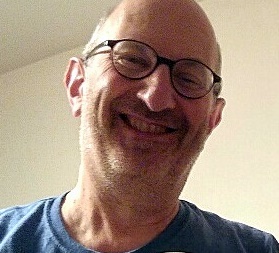
Dealing with head injuries in the context of WSIB
by Richard Fink
Description: Head injuries have become the new "back" disability in the Workers' Compensation law environment. Normally, the degree of injury is not possible to objectively determine; the disabilities run on indefinitely; and the WSIB often rules the concussion has resolved within 3 months, causing a great deal of hardship and litigation. My talk focuses on what the Appeals Tribunal has been ruling in relation to head injuries, and what opinions are appearing in medical reports dealing with this issue.
Tags: Return to work, Workers’ compensation
Richard Fink, Lawyer, Fink & Borntsein Professional Corporation
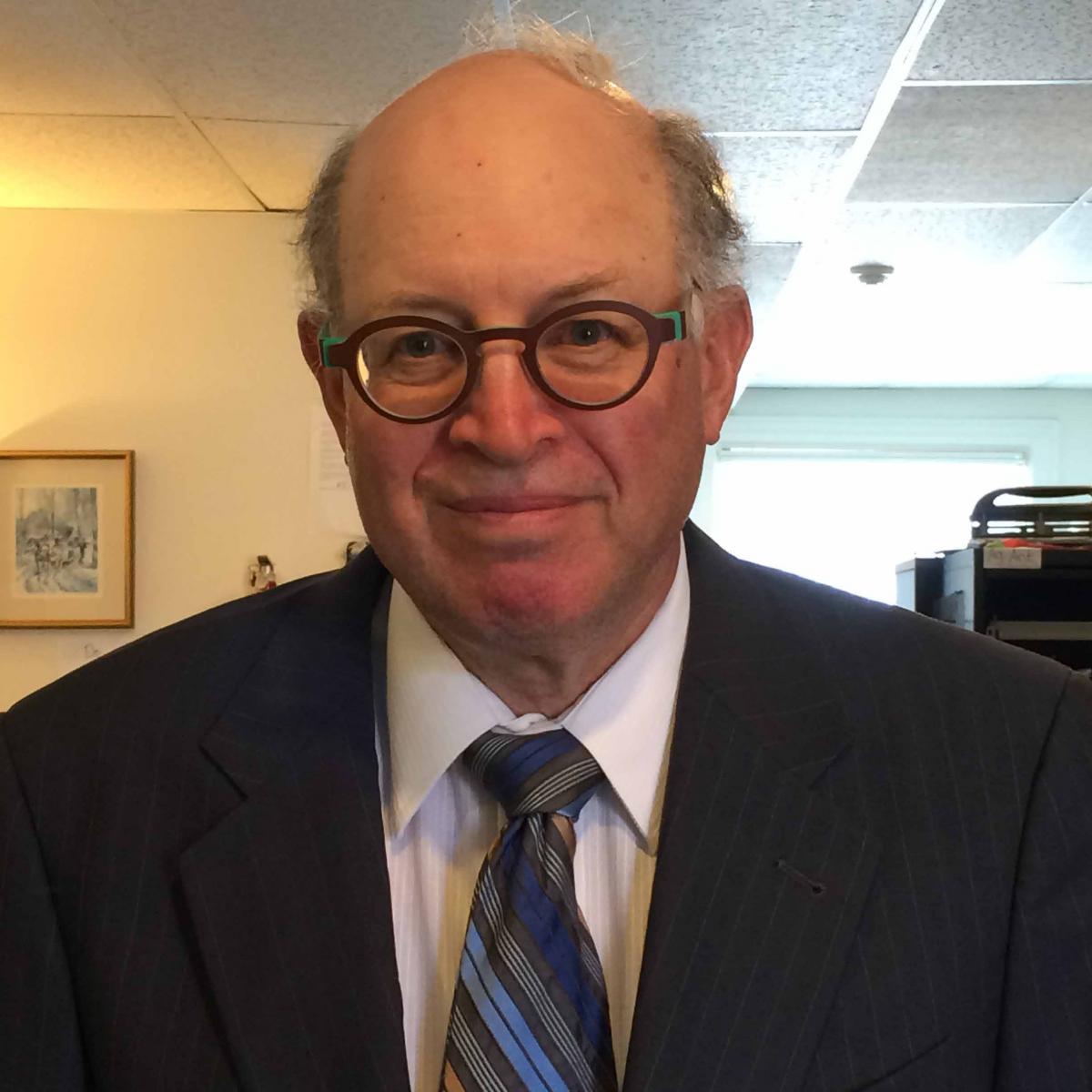
Development and implementation of a novel return-to-work support package to improve income protection insurance in the UK
Description: Project team members include: Dr Sema Etuknwa (Presenter), Dr Serena Bartys (Academic Lead), Professor Kim Burton, and Stephanie McCahon. A new two-year Knowledge Transfer Partnership (KTP) between the University of Huddersfield and one of the world’s leading reinsurance companies – Swiss Re - could change the way the UK insurance industry manages early stage sickness absence and has been labelled by the Government as being a market innovation. The KTP will draw upon world-leading research conducted at the University, as well as Swiss Re’s industry knowledge on income protection insurance to develop and implement an insurance-led, evidence-based return-to-work support package. Over the last decade, Swiss Re have come to realise that aside from providing workers with a salary replacement and good healthcare, people taking sickness absence need extra support in the early stages. In the UK, insurance companies, especially reinsurers such as Swiss Re, don’t usually come into contact with individuals who have taken sickness absence until they make a claim, which is often after several months. This is due to sickness absence pay periods offered by employers, periods of Statutory Sick Pay, and the deferral periods which are part of the terms and conditions of income protection insurance policies. This KTP is part-funded by UK Research and Innovation through Innovate UK. The KTP programme is part of the Government’s Industrial Strategy and aims to help businesses to improve their competitiveness and productivity through the better use of knowledge, technology and skills that reside within the UK knowledge base. The funder said: “This is a strong application with significant commercial, societal and well-being impacts. The project aims to embed new thinking in return-to-work policy.”
Additional Materials and Resources:
Tags: Return to work
Abasiama Etuknwa, Research Project Coordinator, University of Huddersfield

Direct and Indirect Role of Exercise on Employment for Individuals with Disabilities
by Azar Varahra
Description: Background: Employment is an important social determinant of health. Persons with disabilities face unique barriers in terms of employment while their health conditions can add further barriers. Exercise contributes to better health outcomes in various aspects of one’s life with and without disabilities. Despite this, little is known about whether exercise has contribution to employment for persons with disabilities. Objective: This scoping review provided insight into the direct and indirect role of exercise on employment among persons with disabilities. Methods Database searches of MEDLINE, Embase, Scopus, PsychINFO, CINAHL, and HealthStar were performed from their inception date to March 20, 2020. Peer-reviewed articles in English and French were included if a link between exercise and employment, and/or work-related outcomes were reported for persons with disabilities. Results: The research identified 2796 hits, of which 23 published between 1992-2019 met our inclusion criteria. Seven studies identified a direct role of exercise on employment rate, paid employment and full-time jobs. Sixteen studies reported on benefits of exercise outcomes including higher occupational performance (i.e., self care skills, autonomous living), physical fitness and psychological well-being. All could indirectly translate to increased work performance, self-perceived work competence and productivity at work. Conclusions: Our findings showed that sports/exercise modalities have a positive role on employment among persons with disabilities. Sports and exercise benefits may consider to a greater extent, than in the past, in programs that facilitate employment for persons with disabilities. Our results can assist clinicians and vocational practitioners to develop or refine programs that go beyond social life skills and help persons with disabilities to engage more actively in sports and exercise activities.
Additional Materials and Resources:
- Exploring the direct and indirect role of physical activity on employment Among individuals with disabilities: A scoping review. By: Azar Varahra, Hiba Ahmed, Sally Lindsay (poster)
- Varahra, Hiba Ahmed, Sally Lindsay (poster Word version)
Tags: Wellness
Azar Varahra, Post Doctoral Fellow, Bloorview Research Institute
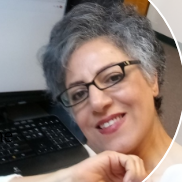
Disability and work. The need for an intersectional and solidarity approach
by Doris Rajan
Description: This poster presentation provides an overview of IRIS– Institute for Research and Development on Inclusion and Society’s intersectional and solidarity strategy for addressing disability oppression in Canada. This approach works specifically with the most marginalized populations specifically; Indigenous Peoples, racialized migrant peoples – especially refugees, African/Caribbean/Black peoples, 2SLGBTQ+ communities, and people labelled with an intellectual, cognitive, and psychosocial disability. The rationale behind this approach is that people in communities who are employers, policy makers, educators, etc., need to attain a deeper understanding of the diversity that exists in this broad label of “disability.” This presentation initiates this discussion by exploring what community members need to know about diverse peoples with disabilities including: What does structural oppression look like, historically and in contemporary times? What is disability? How does intersectionality actually play out? And why a solidarity approach? IRIS has developed an Audit Tool to systematically examine organizations for inclusive intersectional access. This presentation ends with information on a two-year initiative that IRIS is involved with called - Accessibility in Action: Bridging the Disability Community & Regulated Entities under the Accessible Canada Act, where IRIS will be applying this intersectional, solidarity approach in the creation of an online platform that will bring diverse local-to-national disability communities together with thousands of federal government and public and private sector organizations who are regulated under the Accessible Canada Act of 2019.
Additional Materials and Resources:
Tags: Intersectionality, Lived experience
Doris Rajan, Director of Social Development, IRIS Institute

Disability disclosure simulation as an educational tool. Bloorview Research Institute
by Sally Lindsay, Mana Resai, Winny Shen, Brent Lyon
Materials and Resources:
- Sally Lindsay, Mana resai, Winny Shen, Brent Lyon. Disability disclosure simulation as an educational tool. Bloorview Research Institute. - Poster (PDF)
- Sally Lindsay, Mana resai, Winny Shen, Brent Lyon. Disability disclosure simulation as an educational tool. Bloorview Research Institute. - Text Version of the Poster
Video not available
Employment Outcomes for Persons with Early vs Later Disability Onset: Preliminary Findings from the 2017 Canadian Survey on Disability
Description: The age of disability onset can have an important impact on the lives of those with disabilities. In particular, persons whose disability occurs early in life (birth to early adulthood) may experience greater barriers in terms of their educational attainment and employment opportunities compared to those whose disability occurs later on in life (middle to late adulthood). In this presentation, preliminary findings are presented on educational attainment and employment outcomes for three different stages of disability onset: early (0 to 22 years), middle (23 to 45 years), and late (46 years and over). It takes advantage of new age questions asked for the first time in the 2017 Canadian Survey on Disability.
Additional Materials and Resources:
Tags: Life-course perspective, Measurement and accountability
Stuart Morris, Senior Research Advisor, ESDC

Managing Physical and Psychological Disabilities in a Unionized Environment A Workplace Model
by Viki Scott
Description: Managing injuries, illness and disability in the workplace is challenging and important work. During these times of economic cutbacks, layoffs etc. this session introduces an integrative, interest based workplace model to assist you in developing a successful, effective and results based workplace accommodation program for physical and mental disabilities. Discover how a union can be a valuable asset in helping design, develop and implement a workplace Early and Safe Return and Workplace Accommodation Program, risk management initiatives and preventative programs and more..... MCYS – OPSEU – Health & Productivity Workplace Model – Showcased • Ryerson University – Centre for Labour Management Relations – Union/Employer Conference on Disability - 2013 • HRPA Annual Conferences – 2009 and 2015 • Schedule 2 Employer Conference 2009 • Association of Conflict Resolution “ACR” - International Conference – Atlanta, Georgia -2009 • IAPA Annual Conference – 2009 • Education Safety Association Ontario - 2009.
Additional Materials and Resources:
Tags: Accommodation, Initiatives, Return to work
Viki Scott, RC (c); BSc; RRP; CHRM; MBA; ADR (c) , President and Principal Consultant & Chief Lobbyist , Scott & Associates Inc.
Viki Scott is the President and Principal Consultant & Chief Lobbyist of Scott & Associates Inc.
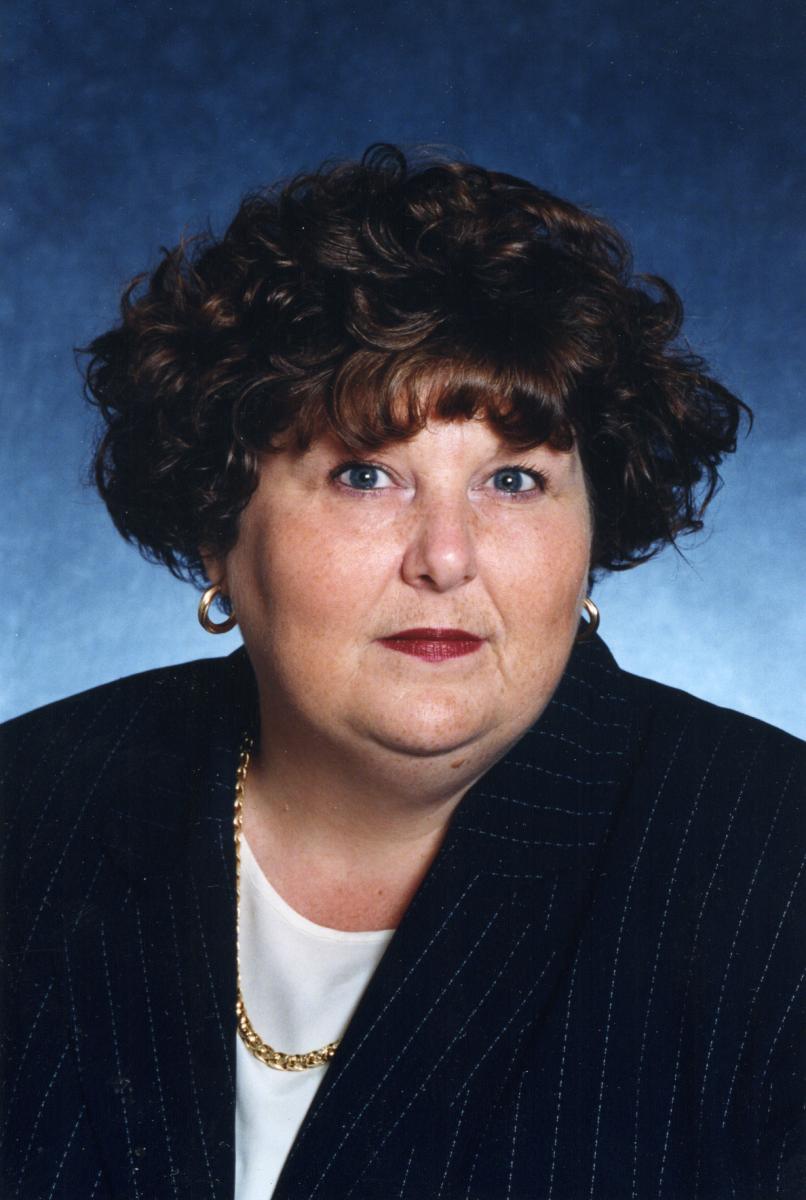
National Disability Insurance: Its Time has Come
Description: As a starting point, we will be outlining the case for a new universal insurance funding model that will provide: FEDERAL FUNDING to give provinces and territories a hand in meeting disability support needs. EQUITABLE ACCESS so Canadians with the same level of need are guaranteed access to the same level of support. PORTABLE SUPPORTS so no matter where Canadians live, we are guaranteed a minimum standard of disability supports. SERVICE GAP ELIMINATION through requirements and support for regional support provider coordination. WORLD CLASS SUPPORT as knowledge networks move new study findings and successful pilot programs into practice. BETTER DATA through national data collection that will provide a clear picture of support needs and track progress.
Tags: Income supports, Initiatives, Lived experience
Jonathan Marchand, Director, Every Canadian Counts
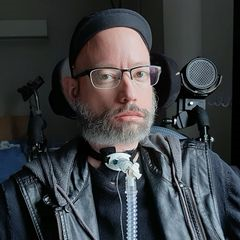
Neurodiverse talent in the workplace
Description: Neurodiversity refers to differences across human brain makeups, including dyslexia, dyspraxia, autism and attention deficit and hyperactivity disorder (ADHD). The majority of the neurodiverse population - like the general disability population - are either unemployed or underemployed and this unfortunate reality places a great burden on the individuals affected as well as our society. One example is the autism unemployment rate – a staggering 92.7 per cent compared to 14.3% for the general population - according to the results from a 2012 Canadian Survey on Disability. Increasingly there is reason for optimism: Organizations are slowly realizing that neurodivergent minds are an untapped talent pool. To begin to seize potential there is much for employers to learn about the opportunities around neurodiverse talent in the workforce. This presentation by Wanda Deschamps will be based on personal experiences and research, as well as programming and activity that can enhance our workplace. It will answer questions such as: What is neurodiversity? Why should employers recruit neurodiverse talent? What does retention of neurodiverse employees entail? How does neurodiverse talent recruitment and retention fit within employers’ overall inclusion, diversity, equity and accessibility strategy? Focused on Canada it will mention growing awareness of the strengths of neurodiversity within a worldwide context. Related to that, it will also highlight the need for neurodiversity to be recognized as a dimension of overall diversity.
Additional Materials and Resources:
- I learned I had autism at 46. I now understand myself. by Wanda Deschamps. Broadview, March 6, 2020
Tags: Disability-confident workplace
Wanda Deschamps, Founder, Liberty Co

Overcoming Disability Barriers to Leadership
by Linda Hunt
Description: This workshop will explore how to assert your leadership skills as a person with a disability. Persons with Disabilities represent 15% of the population in Ontario or approximately 1.85 million people. We are a valuable leaders within our communities and workplaces. Persons with disabilities who are able to assert their leadership skills and advocate for themselves can overcome societal and attitudinal barriers to leadership. This is an interactive presentation with participants fully engaged in discussion. We will take a look at disability barriers that persons with disabilities experience. How to overcome those barriers to leadership. We will discuss strategies for advocating for yourself as a person with a disability. How to effectively assert your leadership skills to overcome disability barriers to leadership roles. We encourage open discussion and exchange of ideas along with Q&A.
Additional Materials and Resources:
Tags: Career advancement
Linda Hunt, Accessibility Consultant, Accessibility Solutions
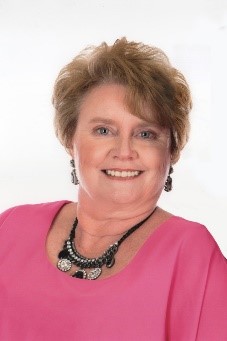
Supporting Stay at Work and Return to Work with TIPS
by Nancy Gowan
Description: Do you have employees that are worried about returning to the workplace? Worry is a normal response, but when worries overwhelm your employee and prevent them from coming back to work, you may need help! Many employees who have been isolated at home may be feeling anxious and concerned about returning to the workplace. Some of those worries may prevent the employee from feeling able to focus on work. Some employees may need more support for their mental health. We have developed a short, practical four-session program to assist the employee in having the tools and confidence to return to full health and productivity. The TIPS for Return to the Workplace Program provides work-focused Cognitive Behavioural Therapy with a focus on getting back to work in a safe and sustainable way. The program was developed to provide the employee education, goal-setting experience, practice, and individualized planning to address any barriers that might be getting in the way of the successful return to the workplace. This session will overview the structured TIPS for RTW program where the Occupational Therapist works with the employee to develop a plan for reintegration that includes healthy self-care and resiliency. The session will demonstrate the outcomes that have been achieved through this structured approach to return to work.
Additional Materials and Resources:
- Gowan Consulting Business Fact Sheet
- Gowan Consulting Fact Sheet on Mental Health Training
- About Gowan Consulting
- The Happiness Challenge Fact Sheet
- TIPS Workplace Program Fact Sheet
Tags: COVID-19, Return to work
Nancy Gowan, President and Occupational Therapist, Gowan Consulting
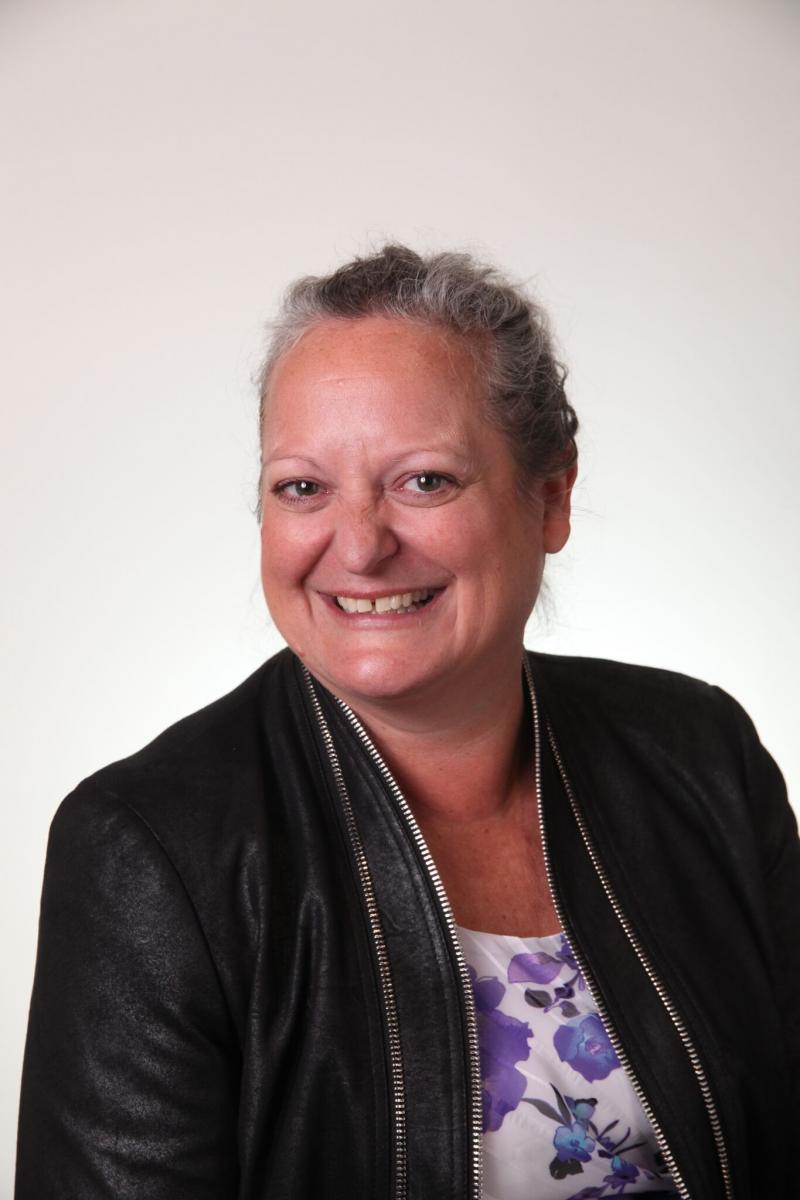
The Art of Remote Dragon Assessments, Training, and Customization
by Alan Cantor
Description: During this session, I draw on experiences of offering Dragon assessments, training, and customizations remotely rather than in person. This practice change was occasioned by the need to provide accommodation-related services and supports after the COVID-19 lockdown to adult employees with disabilities, and to employees who had developed occupational and non-occupational injuries. I begin by describing challenges associated with providing remote accommodation services, with a focus on unique aspects of implementing speech recognition. For example, during a virtual assessment, the assessor may not notice fan noises, nearby conversations, and street sounds that can impact Dragon’s ability to differentiate the user’s voice from environmental sounds. Then, I outline strategies to “workaround” these challenges. For example, to address the potential problems of background noise, I explain to the employee why Dragon performance suffers in noisy environments, and ask the employee to listen carefully for several minutes and report everything they hear in and outside their working area – no matter how insignificant. Having implemented accommodations that include remote Dragon assessments, training, and customizations, I address the ways practitioners might transform the challenges into advantages and improve the likelihood of successful implementation. For example, by alerting potential Dragon users of the importance of quiet environments, they are learning about the practical limitations of speech recognition technology (e.g., that it does not work as well, or at all, in noisy environments), and setting the stage for them to begin to develop effective dictation habits and skills.
Additional Materials and Resources:
Tags: Accommodation, Innovation, Technology
Alan Cantor, President, Cantor Access Incorporated

The Business Case for Hiring Persons with Disabilities
Description: As an employer, maybe you’ve experienced concern around hiring an employee with a disability. Some common misconceptions that exist are that employees with disabilities require costly accommodations, extensive job modifications, or poor attendance. However, you may be interested to know that hiring employees with disabilities can be good for business – very good. The President’s Group recently released statistics showing that diverse workplaces have better business outcomes, are twice as likely to meet or exceed financial targets, six times more likely to be innovative (solve problems creatively), and six times more likely to anticipate change. One of the most impressive stats around employees with disabilities is that they have 72% higher employee retention. Why does that matter? Excessive payroll cost is one of the most common reasons that businesses fail. New employees can cost anywhere from 30% to over 150% of their annual salary. That higher retention rate is starting to look pretty good, right? Most new hires with disabilities require no extra accommodation costs and 37% require a one-time expense of $500. And the benefits? Employees with disabilities bring innovation and on average have equivalent or higher attendance and performance than their peers without disabilities. In addition to boosting internal morale, businesses can become move attractive to employment seekers as younger generations are actively looking for companies that show a clear commitment to diversity and inclusion. The business case is clear, reconsider your applicant tracking system and open up your hiring pool with employees with disabilities.
Additional Materials and Resources:
- Kim Donaldson presentation notes
- Deligiannis, Nick. Hays plc. Jun 22, 2020. What soft skills you will need in the next era of work
- Monster Worldwide. 2020. What workforce diversity means for Gen Z
- The President’s Group. 2020. Why Hiring People with Disabilities is Good for Business in the “New Normal.”
Tags: Disability-confident workplace
Kim Donaldson, Career Facilitator, Neil Squire
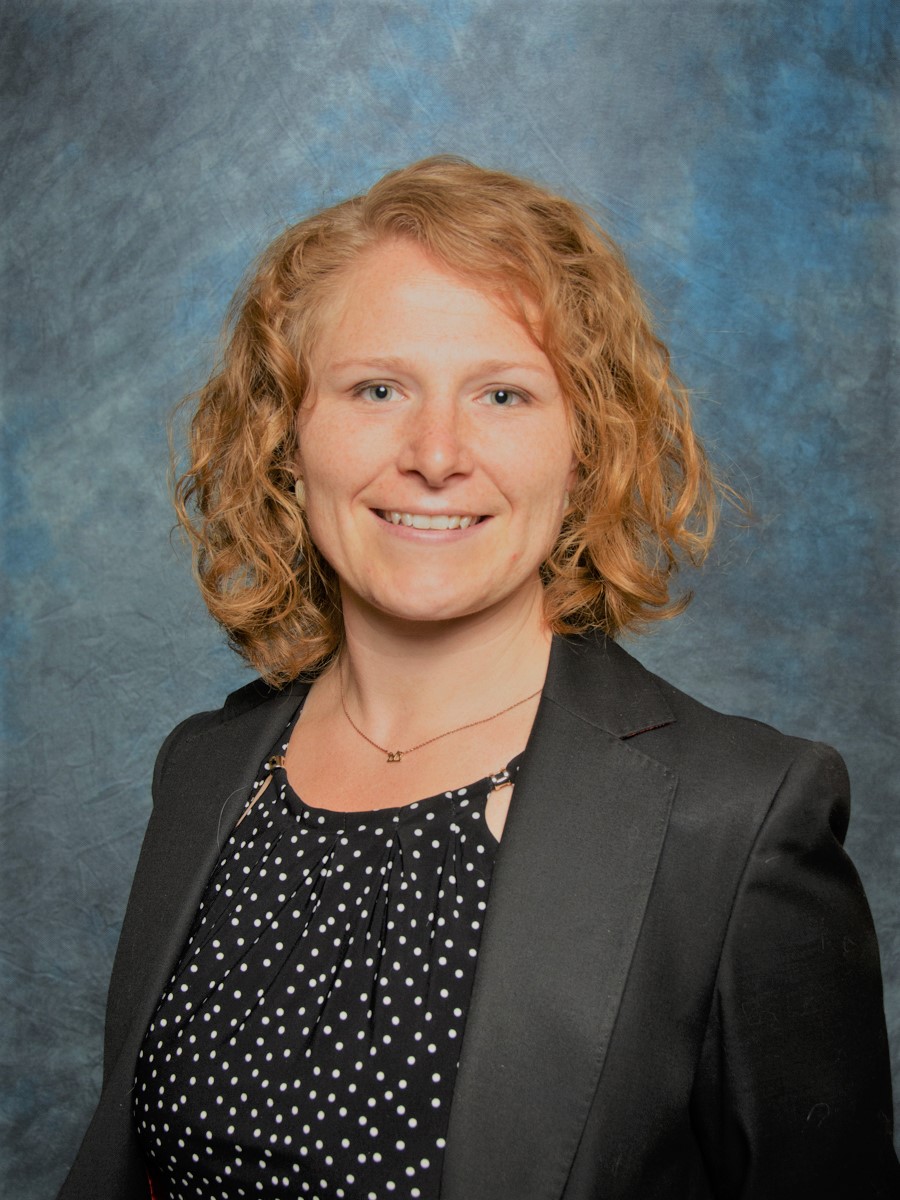
The Effects of COVID-19 on Mental Health: Anxiety and Worry about the Workplace
Description: Many people are continuing to feel anxious about the state of the world due to COVID-19. When workers were sent home, they faced uncertainties about their financial security, their health and the health of loved ones, and their overall way of life. Those who continued working virtually may have experienced anxiety about how to set up their workstations or balance home and work life. With the prospect of returning to or staying at work, working remotely, and returning to school, there are a new set of anxieties and concerns to “worry about.” Employees may require work adjustments as they relearn familiar routines or adapt to new working conditions. Communicating with coworkers and working in proximity to others may not be as easy as they once were. Workers may feel daunted by relearning new processes or resuming old roles. Health and safety concerns may also continue to arise as social bubbles contract once again and the COVID-19 cases rise once again. Join Gowan Consulting for this session to find out more about what employers and employees can do to help with the Effects of COVID-19 on Mental Health.
Tags: COVID-19, Wellness
Karina Prokopchuk, Director of Business Partnerships, Gowan Consulting
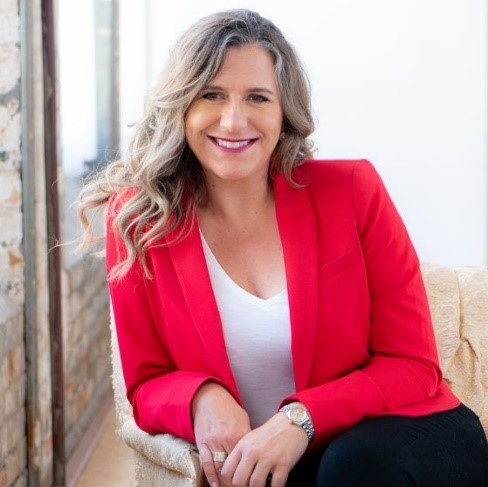
Top Tips to Becoming a Disability-Confident Leader in Your Workplace
by Tova Sherman
Description: Author of 18 Inclusionisms to Becoming A Disability-Confident Employer (a new publication being released October 29, 2020) Tova Sherman is reachAbility CEO and Founder of BAAFF (Bluenose Ability Arts and FilmFest). She has been travelling Canada and beyond for over 20 years discussing the ease of inclusion of persons with disabilities. This presentation will provide learners a snapshot of the top tips to getting started as a disability confident leader. Whether an employer or job developer – this 5 minutes will provide you a simple way to communicate and be a truly disability confident employer in Canada! A graduate of Cornell, a veteran of the TED Talk Series and a recipient of the Queen Elizabeth II Diamond Jubilee Medal of Service (in 2013); Tova will bring her engaging style and depth of knowledge to any discussion around inclusion of persons with disabilities in the workplace. As someone who self-identifies as living with both Cognitive and Mental health impairments Tova’s honest, straight talk style has led her to be a highly demanded speaker across this country.
Tags: Disability-confident workplace
Tova Sherman, CEO, reachAbility
